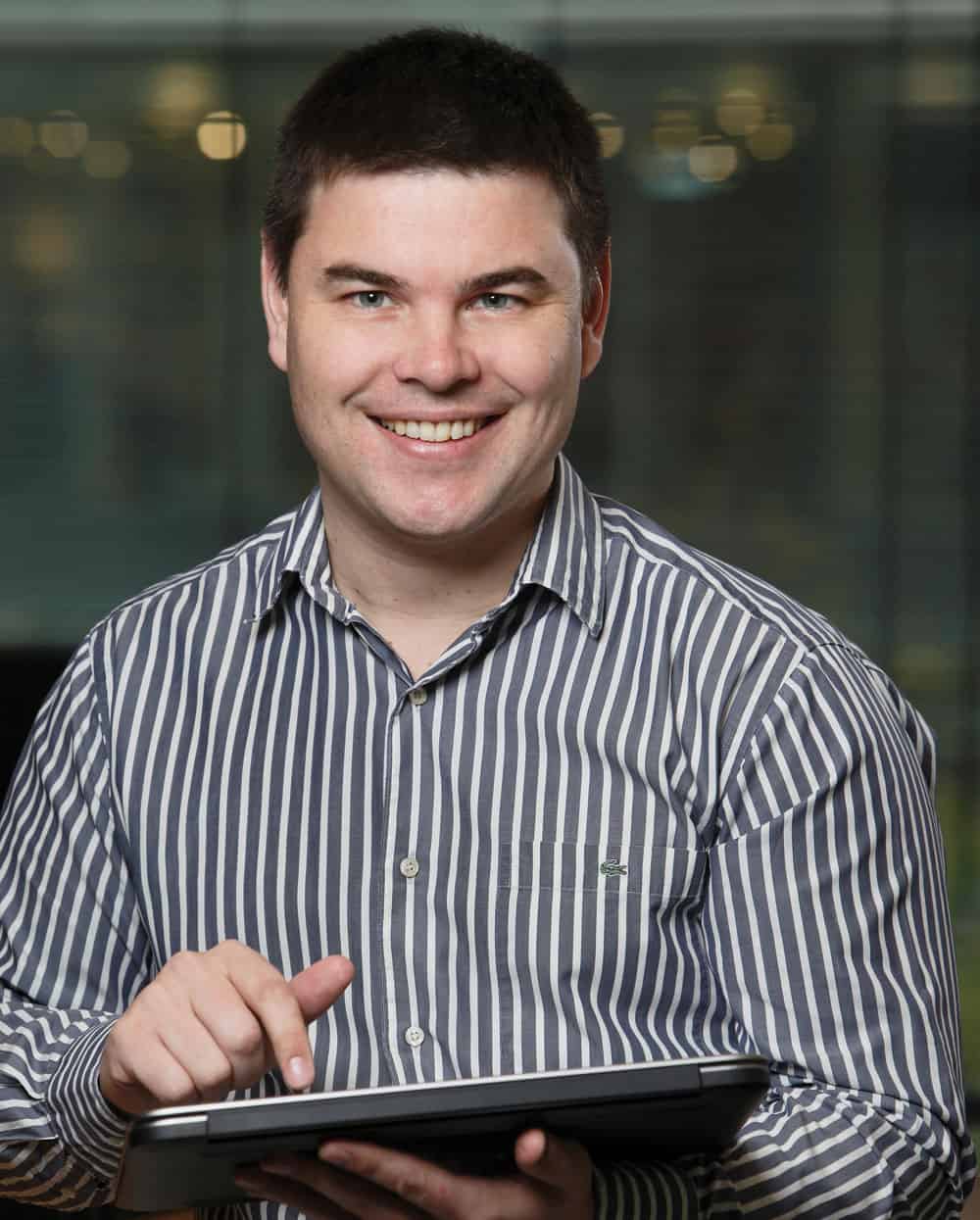Niamh Mac Sweeney speaks to Andrew Murphy, founder and CEO of Sláinte Healthcare, about the changing face of healthcare, both at home and abroad.
Q: This year, Sláinte Healthcare announced 80 new jobs – why the need to expand?
A: Over the last couple of years we have invested heavily in our electronic patient chart application, Vitro. We have achieved some success internationally with this and so we are looking to ramp up the organisation to respond to strong worldwide demand.
Q: What milestones have been achieved by Sláinte?
A: I think key milestones for us have been the development of a strong domestic business, and our Claimsure platform which is now part of the Irish health system.
Q: Can you explain a little bit about the Health Innovation Hub, and what it is hoping to achieve?
A: The Health Innovation Hub was conceived by Dave Shanahan, former head of Life Sciences with the IDA. Dave saw that we had a concentration of medical-related industries in Ireland – from pharma companies, to medical device companies, to some of the best medical and medical research university faculties. Align that to the strong tech scene in Ireland and there would be an opportunity to create a ‘medical technology hub’ that could be a calling card for Ireland.
In order to achieve this, the goal is that Irish hospitals act a ‘testing grounds’ for new technologies and innovations. In theory this delivers the opportunity for innovative companies to showcase their offerings domestically and receive good market feedback and an opportunity to refine their offerings, whilst enabling the health system to benefit from new technologies and in turn ingrain a culture of innovation and continuous improvement. If it all works well, we could see a big impact on our health system domestically, whilst also driving sustainable export-led employment creation.
Q: Where does Sláinte Healthcare have a presence globally and what has been the experience of the company since establishing here?
A: Slàinte currently operates in Ireland, the UK, Middle East, Australia and Philippines. We are also in the process of opening an office in Sao Paulo, Brazil.
Our experience of Ireland is positive in terms of ease of forming and running a business.
However, it can be very difficult to do business with the public health system, due to the timeframes involved for tenders and so on. Thus, it is hard to see many start-ups surviving if they depend on that type of client. I think that is very unfortunate because the public service in general would benefit hugely from the injection of dynamism that a start-up mentality can bring.
The procurement processes and rules that are in place are designed to prevent fraud, for good reason, but they also unwittingly prevent innovation in many ways. I think there is scope for a middle ground.
Q: In your opinion, has the industry changed in the last number of years? What are the challenges and the drivers of growth for the industry?
A: The healthcare markets that we operate have changed quite a bit since we were founded. In most countries, budgets have been tightened and there is a need to do more with the same or lower resources.
While this is often a shock to those working in the health systems, I feel it presents an opportunity to do things differently. By utilising technology, there is significant scope to improve how care is delivered at a lower cost. So in many ways the shift to tighter budgets has had a positive effect on Slàinte’s business, as often they will see our software as a means to achieving their dual goals of increasing patient satisfaction and lower cost.
Q: Do you think Ireland is a good place for life sciences enterprises to grow?
A: As I mentioned above, I think it is a very difficult place for a small enterprise to sell into the public sector. There are however amazing opportunities to tie into the broader life science eco-system here and I guess this was one of the drivers behind the Health Innovation Hub.
We have had some great successes with indigenous enterprises in the medical devices and clinical trials field, whilst the indigenous pharma sector is also growing. In general, I would have a lot of plaudits for how Enterprise Ireland (EI) support young companies. There aren’t many organisations like them around the world and they have been a key support for us over the years.
Q: Do you think the Government is doing enough to support the industry in Ireland?
A: As I said earlier, I think the work of the IDA and EI are excellent examples of positive Government intervention to improve the economic landscape.
In terms of what more could be done – I think there is a big gap for companies that have reached a scaling point – they are profitable and wish to expand, creating more jobs, but access to attractive finance is limited.
There used to be a model where EI could selectively issue debt-instruments of €2m or so for companies that were expanding rapidly. There are many companies that if they had access to this, they could give the State a strong return on investment, and dramatically impact the amount of jobs they create. It is the one area where firms do not have a lot of options.
Accessing VC money is often unattractive for a loss of control and dilution, and the banks are unlikely to want to ‘speculate’ on expansion. There are a lot of supports for start-ups that may well go nowhere, and a lot of supports for large firms either relocating to Ireland or expanding in Ireland.
However, in order to drive job growth, support of the firms that have shown ambition and ability to execute, and are profitable would mean a low-risk, high-reward use of EI investment funds.
Q: When did you set up the firm; what was your motivation; and what previous experience helped you in this regard?
A: On the face of it I was completely unqualified to set up a healthcare software business. I had never worked in healthcare and I am not a software developer.
My experience to date had been to run a manufacturing plant and to design and use technology to drive down errors, improve quality and reduce costs.
The idea for the business came from an operations project during an MBA I was undertaking at UCD Smurfit Business School. As part of the project I was reviewing the revenue cycle process in Irish healthcare and was amazed at the lack of technology in use to drive such a complicated process.
I presented how I would like to see the process automated and after a few months, I received feedback that there was nobody in the market wanting to take on the suggestions that I had made ‘because it was too complicated’.
So eventually I convinced myself that a ‘process is a process, whether it be in manufacturing or healthcare’ and backed myself to address the problem. I was very green and very naïve but ultimately got there in the end.
Q: How would you describe your entrepreneurial spirit and what drives you?
A: One of the things you hear early on as an entrepreneur is ‘if there really was a market for this, then [insert big multinational company name here] would have already addressed it’. This is typically far from the case. Whether in a private or public organisation, complacency is everywhere to see.
I constantly see opportunities for improvement in most places I look – but I need to keep my focus on delivering the change that is within my control.
You can’t boil the ocean and it is easy to get distracted by trying to address too many opportunities. But I guess the key thing that drives me is the vindication of initial hunches to overcome skepticism and potentially big obstacles and still manage to deliver a sustainable difference to the healthcare sector.
Q: Do you have a leadership style? How do you motivate yourself and your team?
A: I think as a leader you have to show passion, be decisive but empower your colleagues to push their boundaries and continue to test themselves.
I’d like to think that everyone working at Slàinte feels that they can, and do, make a strong contribution, but more importantly that they are given the opportunity to develop and grow in a supportive environment. I occasionally like to reinforce to everyone that the net result of all our efforts is an improvement in healthcare systems – all of us will use a healthcare system one day, and I think it is good to remind ourselves that the onus is on us to do our very best to deliver for that system.
Q: How do you define success and what drives you to succeed?
A: To me, success means delivering on promises, earning the trust of the people who use and consume our offering. Hospitals, healthcare administrators, doctors, nurses, patients – if they learn to trust Slàinte, then that defines success.





